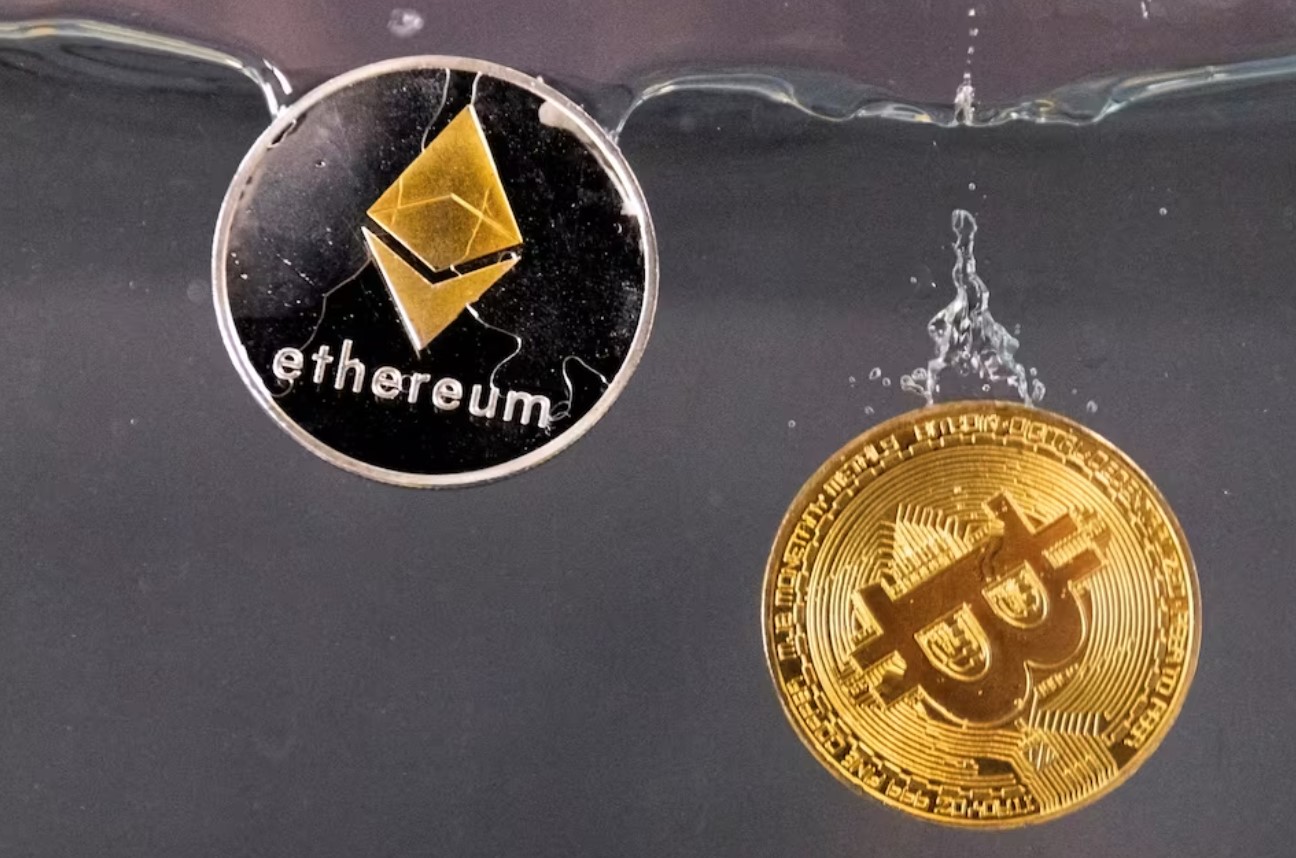It may take a little more time for ether to edge out of bitcoin’s shadow.
Investors are more cautious and divided ahead of the US launch of exchange-traded funds tied to ether’s spot price on July 23, presenting a contrast to the general euphoria that preceded the arrival of ETFs linked to bitcoin.
“It will be less of an event than people are making it seem to be,” said Nathan Gauvin, CEO of asset manager Gray Digital and $2 billion hedge fund Blackridge Investment Management.
Trading in the ETFs issued by nine asset managers led by BlackRock (BLK.N), VanEck, and Franklin Templeton (BEN.N) on US trading platforms comes six months after bitcoin ETFs debuted in January.
The consensus forecast is for ether ETFs to attract about 25 per cent of bitcoin’s flows, though Steven McClurg, head of US asset management at CoinShares estimated it at just 10 per cent.
A major issue for some investors is the SEC’s exclusion of the “staking” mechanism, a key feature on the Ethereum blockchain which releases ether, the world’s second-largest cryptocurrency after bitcoin.
Staking allows Ethereum users to earn rewards by locking up their ether to help secure the network. The rewards or yield come in the form of freshly-minted ether tokens and parts of network transaction fees.
The annual percentage yield on staking Ethereum was around 3.12 per cent as of July 22, according to StakingRewards.com. Staking is appealing because it enhances returns.
As currently constructed, the SEC will only allow the ETFs to hold regular, unstaked ether.
“An institutional investor looking at ether knows that there are yields to be had,” said CoinShares’ McClurg. “It’s like a bond manager saying I will buy the bond, but I don’t want the coupon, which is counter to what you’re doing when you’re buying bonds.”
The SEC believes staking in exchange for tokens is considered an investment contract, which requires disclosures and safeguards under US securities laws.
McClurg believes investors will continue to stake ether outside an ETF and earn a yield as opposed to paying fees and holding it in an ETF.
He said CoinShares, which oversees more than $6 billion in assets, is going to wait and see how this all pans out. “We made a conscious decision not to get involved in this round for an ETF that’s not staked.”
Gray Digital’s Gauvin thinks staking will eventually be included in the ETF sometime next year. “But this is a midpoint to get there.” The firm is also not participating in this launch, but will watch it closely.
Chanchal Smadder, ETC Group’s head of product, echoed comments from CoinShares’ McClurg, saying holding the ETF without the staking yield is “like owning a stock and not having the right to the dividend.”
ETC, with $1.4 billion in assets, is Germany’s first issuer of crypto exchange-traded products (ETP), which are similar to ETFs. It has both staked and unstaked ether ETPs totaling $150 million.
Demand for staked ether ETPs is higher than the unstaked ones, Smadder said, with the staked fund getting $51 million in inflows so far this year, while the unstaked saw outflows of $95 million.
Smadder did point out, though, that illiquidity is a risk when staking ether with validators or stakers having to queue to withdraw their staked ether. The processing time to complete the exit queue could sometimes take eight to nine days, he said.
“With unstaked, the ether is unlocked and available at all times.”
Nana Murugesan, president of Matter Labs, a research and development company that helps scale Ethereum, said the ether ETFs launch was less about staking, but more a “watershed moment” in crypto.
The more important thing, Murugesan said, is investors’ access to a blockchain underpinning multiple applications. “As Ethereum and its adoption grow, the ETF’s value also grows with all the network effects.”
Overall, investors agree that ether flows are unlikely to come close to those bitcoin ETFs captured in the first week of trading, given ether’s smaller market capitalization of $424 billion, compared with bitcoin’s $1.4 trillion.
Bitcoin ETFs drew nearly $7 billion in assets in their first three weeks of trading, Morningstar Direct data showed. As of end-June, the ETFs had attracted a net $33.1 billion in inflows.







Click here to change your cookie preferences